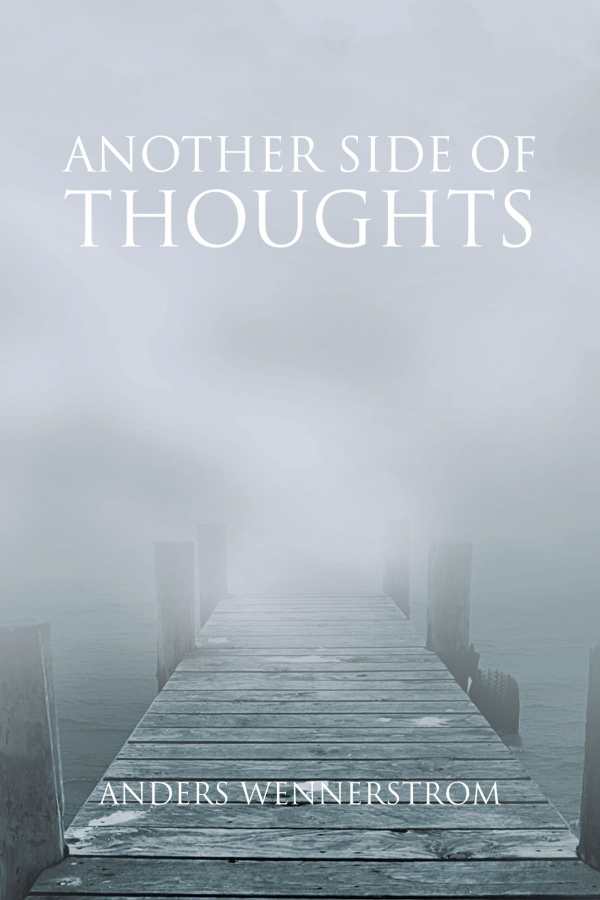
Another Side of Thoughts
These poems are haunting, with a blend of ferocity and obscurity.
In his collection Another Side of Thoughts, Anders Wennerstrom explores themes related to time and gender. This slim volume of poems occupies space somewhere between the real and surreal.
There are no poem titles in the collection and little to mark the shift from piece to piece other than an extra line break or two, and poems are composed in all caps with the lines center justified. Line breaks become important to understanding how to engage with the book as a whole; each creates a world that demonstrates the poet’s mind in action—a mind that is thinking deeply in ways that do not necessarily fit neatly into everyday life.
There is richness to be found within these poems. The images rendered in the opening pages are striking; it is in these early lines that Wennerstrom’s poetry is most successful and evocative. He writes, “YOU AND I FOLLOW WEATHER / FOLLOW STREETS / FOLLOW A BIRD / INTO COLLECTIONS OF BEINGS / THAT PENETRATE US.” Moments like these are gorgeous in their longing.
This yearning continues throughout and is accompanied by an anger that fumes in lines like “AND YOU SHOULD KNOW / WE ARE WAITING TO FIND / THE REAL MAN / FROM BENEATH THE EARTH / FROM BENEATH MAN / FROM BENEATH DEATH AND MAN.” For Wennerstrom, understanding gender and gender roles seems to be a process that continually folds in on itself, lending it a density that is evident in his use of language.
There is without a doubt intensely interesting material within these poems. The lack of signposts, however, like poem titles or a brief synopsis of the poet’s intent, renders Another Side of Thoughts somewhat difficult to access for readers who do not know the poet personally.
Likewise, though the stream-of-consciousness style is effective at weaving together images related to love and mechanics and time, it can also make it difficult to follow the trajectory of the volume. The poems are also composed in all caps with the lines center justified; with no variety in voice or form, every page reads the same.
The choice to use capital letters is especially off-putting, as it creates a barrier between poet and audience. Though Wennerstrom often crafts rich phrases, the loud effect of all caps makes it difficult to be fully moved by lines like “WHERE MY SHADOW / DIDN’T HAVE ANY EYES.”
Wennerstrom—whose native language is Swedish—writes in a way that haunts, in a way that offers a perspective that really just might be outside of ordinary perception. It is this blend of ferocity and obscurity that makes the collection intriguing.
Reviewed by
Margaret Fedder
Disclosure: This article is not an endorsement, but a review. The publisher of this book provided free copies of the book and paid a small fee to have their book reviewed by a professional reviewer. Foreword Reviews and Clarion Reviews make no guarantee that the publisher will receive a positive review. Foreword Magazine, Inc. is disclosing this in accordance with the Federal Trade Commission’s 16 CFR, Part 255.
